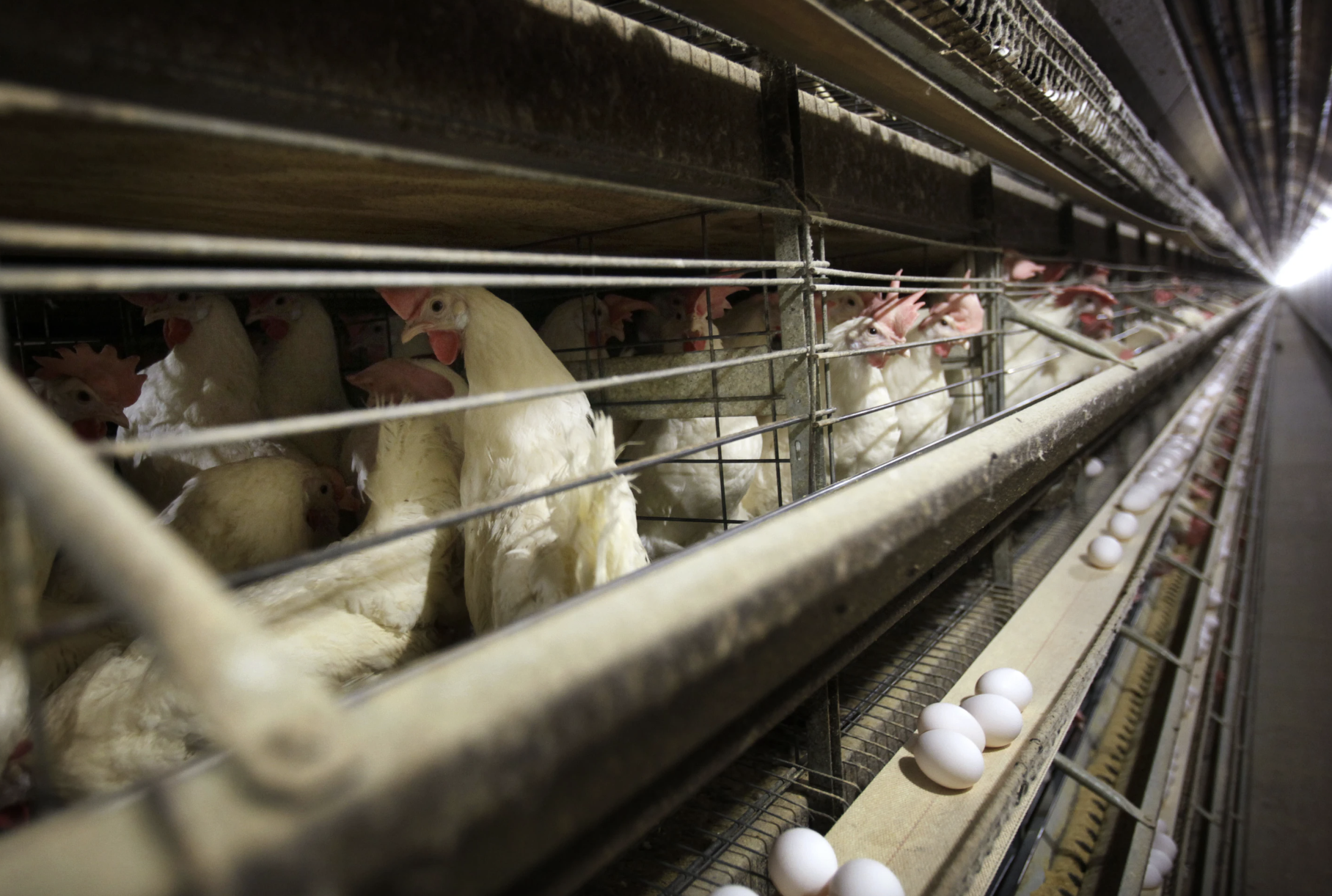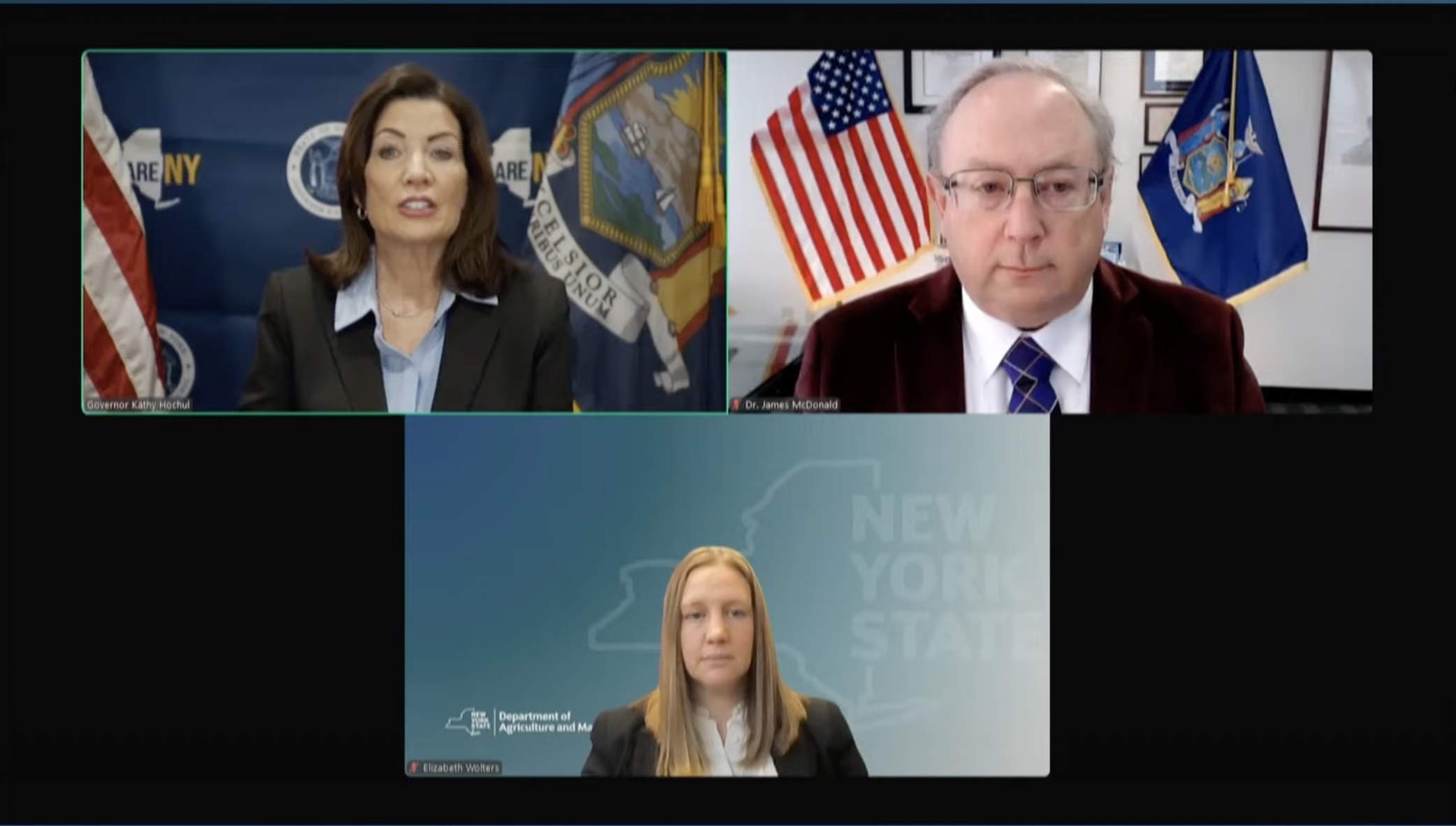Bird flu found in Queens as gov closes live poultry markets
/In response to Avian flu cases found in Queens and other parts of the city, Governor Kathy Hochul announced the temporary closure of all live poultry markets. AP file photo by Charlie Neibergal
By Ryan Schwach
The Avian flu, better known as bird flu, was found in a number of locations in Queens and several other boroughs last week.
With the discovery of bird flu in seven locations in Queens, Brooklyn and the Bronx, Governor Kathy Hochul announced the temporary closure of all live poultry markets in New York City, Westchester, and Long Island.
“Safeguarding public health is all about being proactive, and New York State is continuing our coordinated effort to monitor for the Avian influenza,” Hochul said. “My top priority will always be to keep New Yorkers safe, and I have directed our state agencies to use all available resources to ensure we are taking every measure necessary to keep the risk to the public low. We will continue to take these measured, common sense steps that will curb the spread of bird flu and ultimately protect our communities.”
According to the New York State Department of Agriculture and Markets, highly pathogenic avian influenza was found in seven live bird markets in Queens, Brooklyn and the Bronx.
However, the department did not provide the Eagle with the specific affected businesses “in order to protect impacted businesses and farms.”
Following the discovery, all of the live poultry markets in the city, Westchester and Long Island will have to close for three to five days for cleaning, regardless of if they were found to have the flu among their livestock.
“This notice and order is a commonsense measure aimed at getting ahead of the virus, rather than chasing it,” said Agriculture Commissioner Richard A. Ball. “We’re working with USDA and other partners to make sure that we can minimize the economic impact to these markets, and we very much appreciate the markets’ cooperation and assistance in protecting public and animal health.”
The order also requires that no live birds will be delivered to stories until Feb. 14.
Governor Kathy Hochul and state health and agriculture officials addressed Avian flu in New York State on Friday morning. Screenshot via Governor’s Office/YouTube
The cleaning process includes the removal of all organic debris from all equipment, caging and flooring, and requires that all surfaces be cleaned thoroughly.
Markets that test positive for the infection will be depopulated, but USDA provides compensation for losses incurred by shops that have infected birds.
Queens is home to a large number of live poultry markets, particularly in Southeast and South Central Queens. There are around 70 live poultry markets citywide, many of which butcher chickens and other small birds.
“We just have to follow the protocol,” a worker at a Jamaica live poultry market who was not authorized to speak to reporters told the Eagle. “We just had an inspection on Monday, and it came back negative, and we have to still close.”
The employee said that the store’s livestock is generally tested before it arrives at the store.
Queens Councilmember Lynn Schulman, who is the chair of the Council’s health committee and who represents neighborhoods with a large number of live poultry markets, backed the state’s decision.
“This is a necessary step to protect public health, and I commend state and city agencies for their swift response,” she said in a statement Friday. “The NYC Health Department is working closely with affected markets, ensuring that workers are informed about symptoms and have access to testing and treatment if needed. Any staff with potential exposure are being offered testing and Tamiflu, even if they are asymptomatic. The Health Department remains prepared to respond to any potential outbreak with enhanced surveillance, vaccination, testing and treatment efforts.”
In the last several weeks, bird flu has had a great impact on the bird and poultry populations in the United States, leading to shortages and higher prices for eggs and other poultry-related items.
The Associated Press reported that more than 156 million birds nationwide have been affected by the outbreak, many at large farming operations.
Last year, the virus jumped to dairy cows for the first time, affecting nearly 1,000 herds nationwide, according to the CDC.
So far this year, there have been 67 confirmed cases of bird flu in humans in the U.S. and one death.
However, health officials say the threat to humans remains low because the virus cannot jump from human to human, and most of the infected people were farm workers with long and consistent exposure to infected animals.





